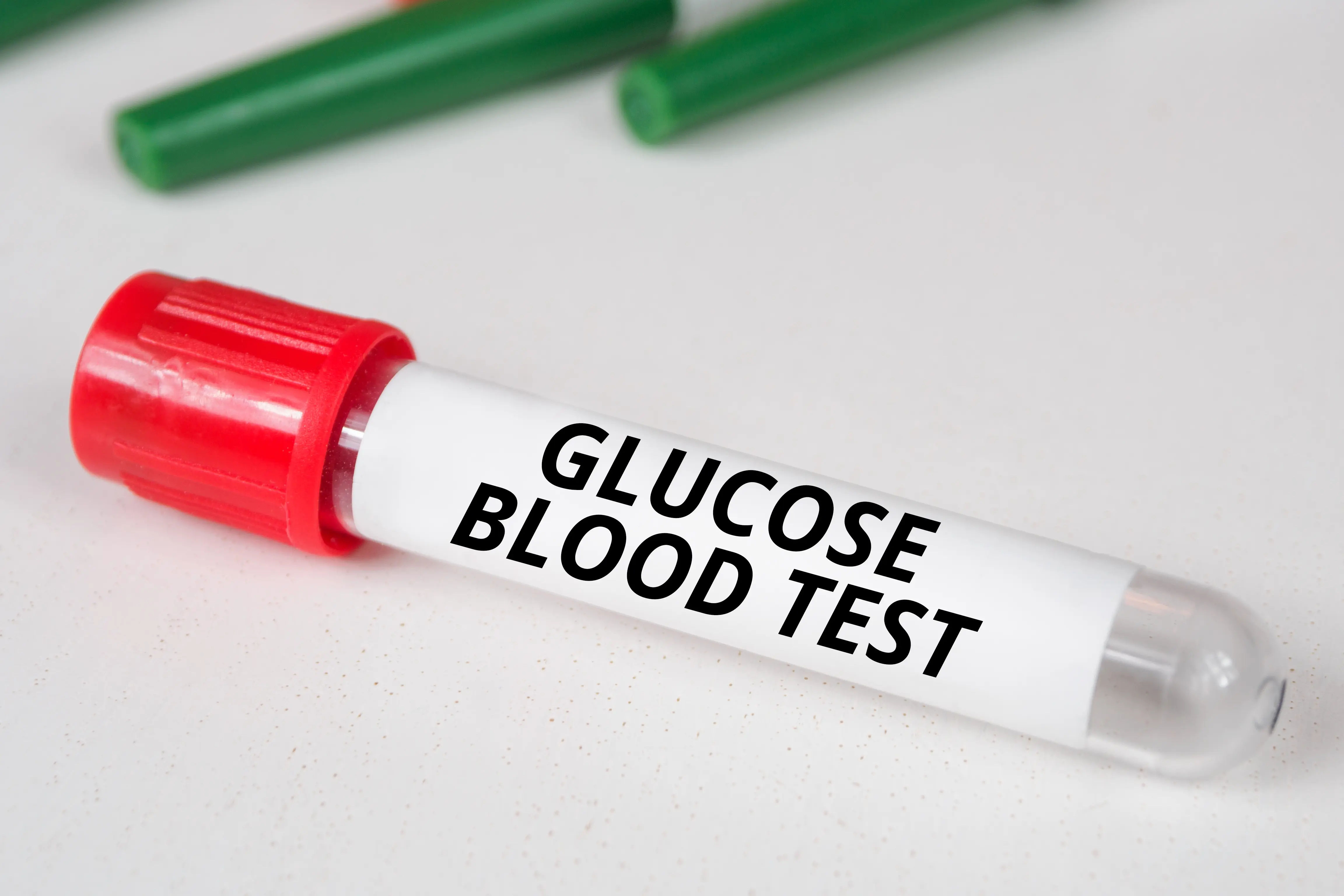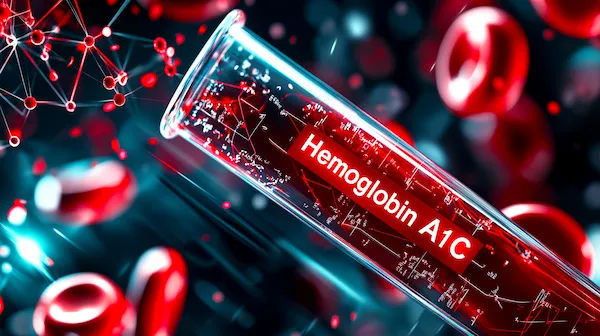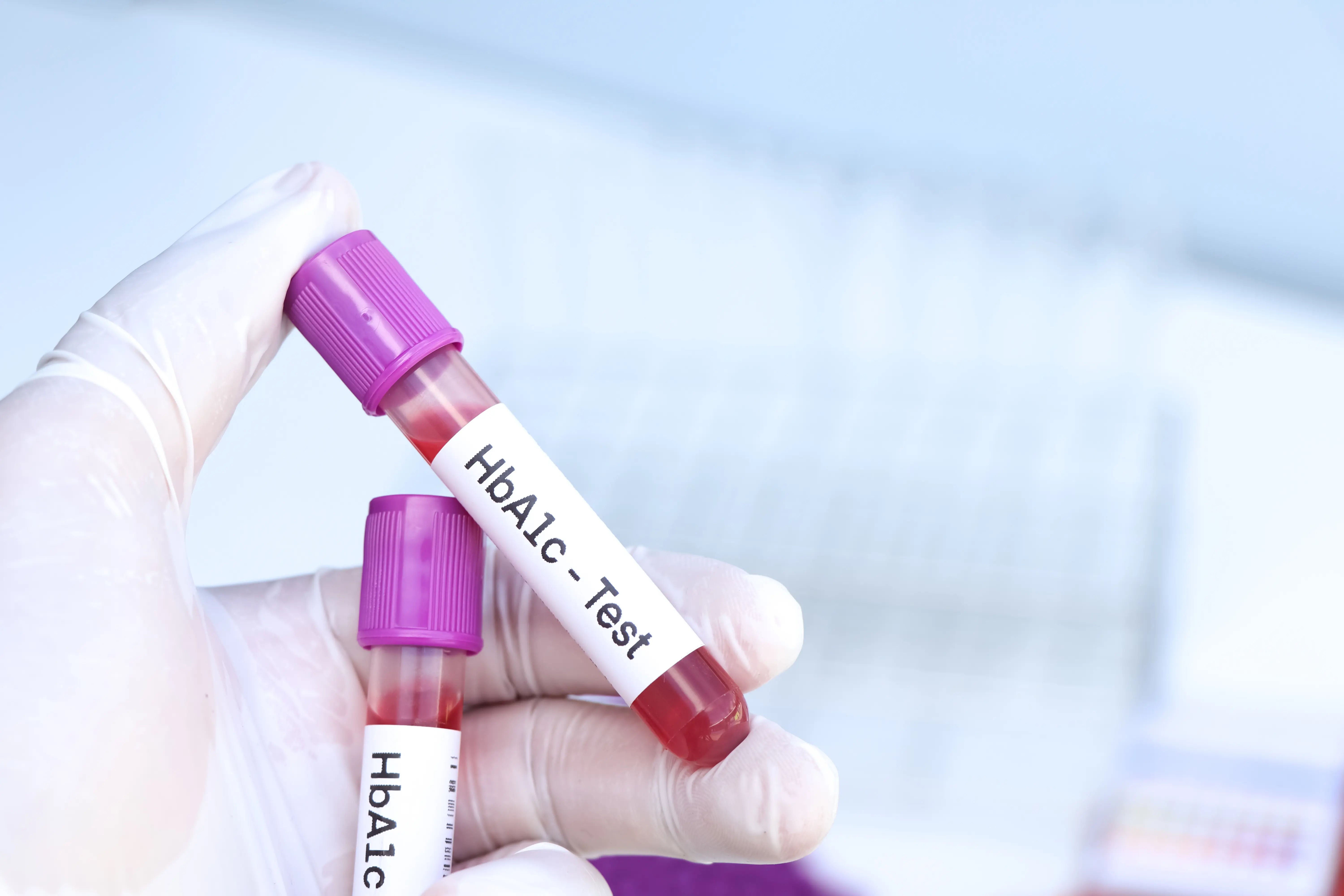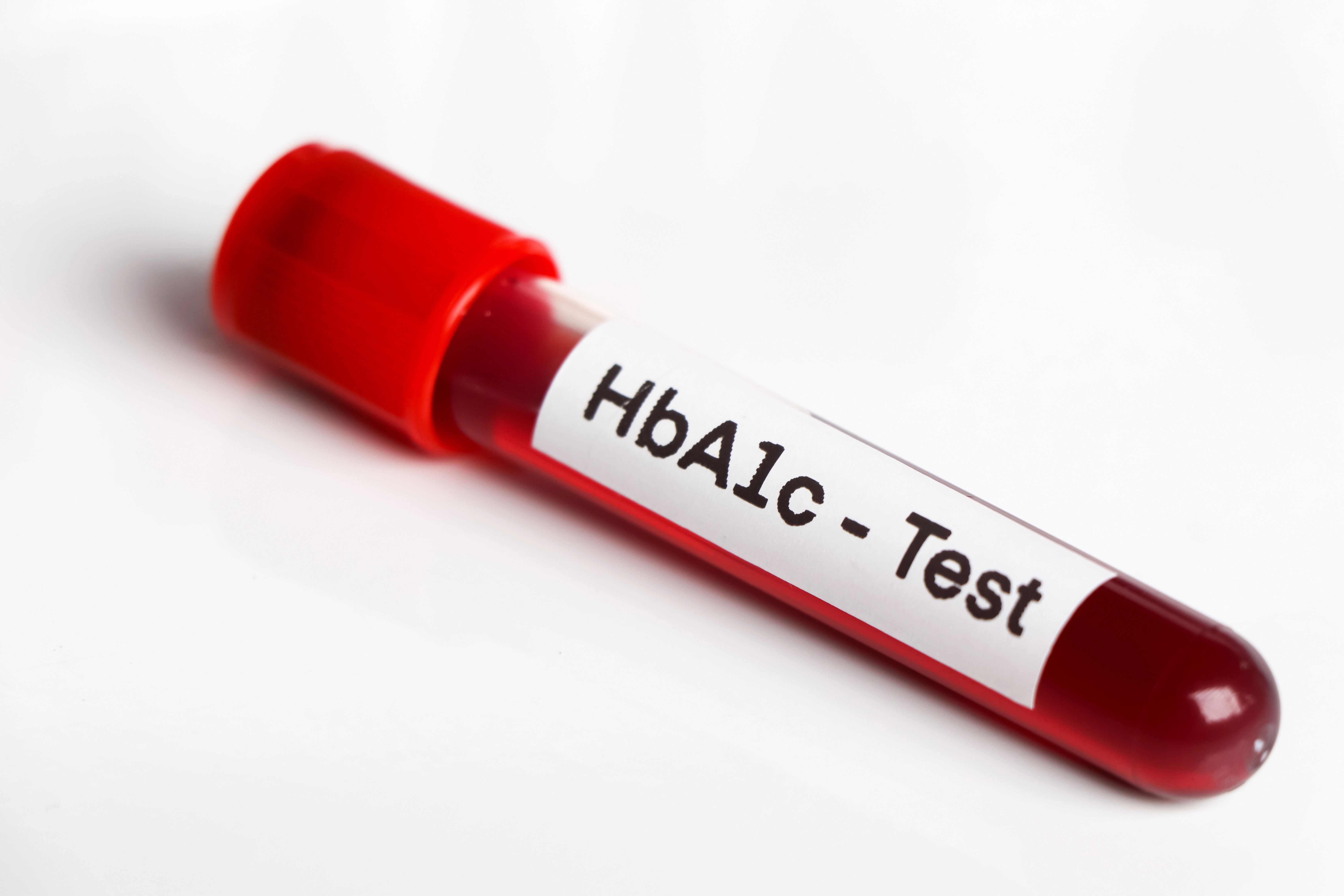HbA1c Testing After Viral Fever or COVID: Is It Necessary?
Know about HbA1c testing, measurments, its significance in viral and covid19, what is post covid 19 diabetes, where and who should get these tests done.

Written by
Last updated on 17th Jul, 2025

Recovering from viral infections like dengue, influenza, or COVID-19 can feel like a milestone in itself. However, what many patients don’t realise is that their journey to full health doesn’t necessarily end when the fever subsides. Some people experience unexpected symptoms during recovery, such as fatigue, dizziness, or even signs of high blood sugar. For others, routine post-illness testing reveals previously undetected blood sugar abnormalities. This has sparked growing awareness around a particular diagnostic tool: the HbA1c test. In this comprehensive guide, we explore why HbA1c testing post-COVID or viral fever may be necessary, what causes a sugar spike after illness, and how timely testing can help you regain control over your health.
Understanding HbA1c: What Does It Measure?
HbA1c, or glycated haemoglobin, is a blood test that measures the average blood glucose levels over the past two to three months. It is widely used in the diagnosis and management of diabetes and prediabetes. Unlike random blood sugar tests, which fluctuate throughout the day depending on what you eat, HbA1c gives a more stable and comprehensive overview of your glucose control.
Here’s what different HbA1c levels typically indicate:
Why Is HbA1c Important After Viral Fever or COVID-19?
After recovering from viral fever or COVID-19, many people may not realise that their blood sugar levels could remain disrupted. Factors like stress, medications, and inflammation can trigger hidden imbalances in glucose control, even in those without diabetes. Monitoring HbA1c after illness helps detect these silent changes early and guides timely intervention. Here’s why HbA1c is important after viral fever or covid-19:
1. Illness-Induced Stress on the Body
During any infection, including viral fever or COVID-19, the body undergoes immense physiological stress. The immune system is activated, inflammation levels rise, and hormones like cortisol and adrenaline are released. These hormones increase glucose production in the liver, which may lead to temporary or prolonged hyperglycaemia, even in non-diabetic individuals.
2. Use of Steroids During Treatment
Many COVID-19 patients, particularly those with moderate to severe illness, are treated with corticosteroids such as dexamethasone. While effective at reducing inflammation, these medications are well-known to raise blood sugar levels significantly. In some people, this rise is temporary, while in others it uncovers or triggers long-term metabolic dysfunction.
3. Reduced Physical Activity and Altered Diet
Bed rest and reduced activity during illness recovery can impact how the body regulates blood glucose. A drop in physical activity combined with comfort foods or irregular eating patterns often results in poor glucose control, particularly in individuals already at risk of insulin resistance.
4. Lingering Inflammatory Effects
Even after recovery, the body may experience prolonged systemic inflammation. This can impair insulin signalling pathways, increase insulin resistance, and contribute to what many now call “post-COVID metabolic syndrome.”
Get Your Blood Sugar Levels Checked
What Is a Sugar Spike After Illness?
A sugar spike after illness refers to a sudden or prolonged rise in blood glucose levels following recovery from a viral fever or COVID-19. For many patients, this comes as a surprise, especially if they never had blood sugar issues in the past. Symptoms may include:
- Increased thirst
- Frequent urination
- Sudden fatigue
- Blurred vision
- Unexplained weight loss or gain
These signs may be subtle or misattributed to post-viral fatigue. However, when investigated, they often reveal elevated fasting blood glucose or HbA1c levels.
Post-COVID Diabetes: What Do Studies Say?
Several studies globally have now linked COVID-19 to new-onset diabetes. According to international research:
- Up to 14% of COVID-19 patients develop new-onset hyperglycaemia during or after their illness.
- Many of these cases do not resolve completely post-recovery and require ongoing monitoring.
- Some patients show elevated HbA1c levels weeks or months after testing negative for the virus.
This has led to expert recommendations for HbA1c testing 6 to 12 weeks after recovery, particularly in those treated with steroids, those with pre-existing risk factors, or those experiencing unusual symptoms.
Who Should Get an HbA1c Test After Viral Fever or COVID?
Not everyone needs HbA1c testing post-illness. However, certain groups stand to benefit greatly from this simple blood test:
Recommended for:
- People who received steroids during treatment
- Individuals with obesity or a family history of diabetes
- Patients who experienced severe or prolonged infection
- Those experiencing unusual post-recovery symptoms (fatigue, thirst, etc.)
- Individuals with pre-diabetes, PCOS, or high triglycerides
May not be necessary for:
- Young, healthy individuals with mild fever who recover quickly
- Patients with normal fasting glucose and no other risk factors
If unsure, always consult your doctor before deciding.
When to Test: Optimal Time for HbA1c Post-Illness
Since HbA1c reflects glucose trends over the past 2–3 months, the best time to test it after a fever or COVID episode is:
- 6 to 12 weeks post-recovery for most accurate insight.
- Sooner if symptoms persist, or your doctor suspects glucose abnormalities.
Avoid testing immediately during or after acute illness, as this may give skewed results due to temporary spikes.
How to Book an HbA1c Test After Illness?
Apollo 24|7 offers a range of reliable diagnostic services, including home sample collection for HbA1c testing. Options include:
1. HbA1c (Glycated Hemoglobin) Test
- 3 Tests Included
- Checks average glucose over 2 to 3 months
- No fasting required
- Report in 6 hours
- Ideal for routine post-viral follow-up
2. Apollo Diabetes Panel – Basic
- 38 Tests Included
- Comprehensive screening for early-stage diabetes and related parameters
- Includes fasting glucose, HbA1c, lipid profile, and urine sugar
- No fasting required for most parameters
- Ideal for first-time diabetes screening or routine monitoring
Book a Apollo Diabetes Panel – Basic Test
3. Apollo Sugar & Heart Panel
- 16 Tests Included
- Evaluates key diabetes and cardiac risk markers in one panel
- Includes glucose, HbA1c, lipid profile, and hs-CRP
- Fasting may be required for accurate lipid results
- Recommended for individuals with both sugar and heart health concerns
Book a Apollo Sugar & Heart Panel Test
4. Apollo Diabetes Panel – Essential
- 75 Tests Included
- Expanded diabetes assessment covering blood sugar, kidney, liver, and thyroid function
- Includes HbA1c, insulin, electrolytes, and complete metabolic profile
- Fasting typically required
- Ideal for moderate to high-risk patients or a detailed annual check-up
Book an Apollo Diabetes Panel – Essential
5. Apollo Diabetes Panel – Advance
- 105 Tests Included
- In-depth evaluation of diabetes, complications, and related organ health
- Covers HbA1c, insulin, vitamin levels, cardiac risk markers, kidney, and thyroid profiles
- Fasting required for accurate glucose and lipid measurements
- Best suited for people with known diabetes or those at high risk
Book an Apollo Diabetes Panel – Advance (105 tests)
6. Glucose Fasting and PP Test
- 2 Tests Included
- Measures fasting and postprandial (after food) blood sugar levels
- Requires overnight fasting and a sample 2 hours after a meal
- Quick results to assess daily sugar fluctuations
- Ideal for diabetes diagnosis or monitoring short-term glucose control
Book a Glucose Fasting and PP Test (2 tests)
7. Insulin Fasting Test
- 1 Test Included
- Measures insulin levels after fasting to assess insulin resistance or PCOS
- Requires overnight fasting
- Often used alongside glucose tests to evaluate metabolic function
- Ideal for early detection of insulin-related issues
Book an Insulin Fasting (1 test)
You can book the test directly via the Apollo 24|7 platform. Home collection is available in most major cities, with trained phlebotomists and certified labs.
Interpreting HbA1c Results After Fever
Your HbA1c levels provide key insight into whether your body is regulating glucose efficiently post-recovery. Here’s what different results mean:
Note: One test isn’t enough for diagnosis. Elevated levels should be confirmed by additional blood sugar readings (fasting and postprandial), along with clinical evaluation.
What to Do If Your HbA1c Is Elevated After COVID or Fever?
Discovering an elevated HbA1c can be concerning, but early detection is a good thing. Here's how to proceed:
1. Consult Your Doctor
Never self-diagnose. Share your report with a healthcare provider for clinical evaluation and a treatment plan.
2. Make Lifestyle Adjustments
- Eat balanced meals (avoid refined sugars and processed carbs)
- Exercise moderately (e.g., walking, yoga, stretching)
- Get enough sleep and manage stress
- Stay hydrated
3. Monitor Symptoms
Keep an eye on signs of high blood sugar, especially if they get worse or interfere with daily life.
4. Follow-Up Testing
If your HbA1c is borderline or elevated, retest in 3 months. Continuous monitoring helps prevent complications.
The Role of Prevention in Post-Viral Glucose Control
The aim of post-viral monitoring is not only diagnosis but prevention of long-term damage. Elevated glucose levels, if ignored, may contribute to:
- Fatty liver disease
- High blood pressure
- Kidney stress
- Heart complications
On the other hand, early awareness empowers you to correct your lifestyle, reducing the risk of developing chronic conditions.
Conclusion: Should You Get an HbA1c Test After Fever or COVID?
If you’ve recently recovered from a serious viral illness, especially COVID-19, and are concerned about your health, HbA1c testing offers a simple, non-invasive way to detect any post-illness blood sugar abnormalities. It is particularly valuable for individuals who were treated with steroids, feel unusually fatigued or thirsty, have a family history of diabetes or other metabolic conditions, or simply want reassurance after a challenging infection. With Apollo 24|7, you can access certified lab testing and convenient home sample collection, ensuring timely and accurate results. Taking this small step today could help you avoid more serious health issues in the future.





